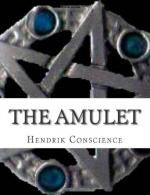[Footnote 10: This church was demolished at the commencement of this century. The spot upon which it stood is now called the “Plain of Saint Walburga.”]
[Footnote 11: In the History of Antwerp, by Mertens & Torfo, Part IV., chapter iii., is found a view of the city, from the banks of the Scheldt, as it was in 1556, and details concerning the principal edifices.]
[Footnote 12: “Geronimo went to Simon and demanded payment of the sum lent, and for which he held a note. Turchi made various excuses, and put off payment from day to day.”—Matteo Bandello.]
[Footnote 13: “A fierce desire of vengeance took possession of Simon, and he sought to kill Geronimo.”—Matieo Bandello.]
[Footnote 14: A measure of four pints.]
[Footnote 15: “One night, when passing through the streets, he received from the hands of an enemy an ugly wound in the face. He suspected Geronimo of having inflicted it; in which he was mistaken, for the author of the attack was afterwards discovered.”—Matteo Bandello.]
[Footnote 16: “After Simon Turchi had determined to revenge himself, and after long consideration, he ordered a large wooden arm-chair, to which were attached two iron bars, so arranged that whoever should sit down in it would be caught by the legs below the knees, and would be unable to move.”—Van Meteren, History of the Low Countries.]
[Footnote 17: “Geronimo, a merchant from Lyons desires to see you, but as he does not wish to be known at Antwerp now, he is concealed in my garden. He begs that you will meet him there.”—Matteo Bandello.]
[Footnote 18: “This chair being made, he told one of his servants, named Julio, who was proscribed in Italy, and under sentence of death.”—Van Meteren, History of the Low Countries.]
[Footnote 19: “And the said Julio pushed Geronimo into a large arm-chair, which sprang and closed.”—Origin and Genealogy of the Dukes and Duchesses of Brabant. Antwerp, 1565; p. 308.]
[Footnote 20: “In the cellar ... in a grave which had been prepared by the said Julio to bury Geronimo after the commission of the murder.”—Origin and Genealogy of the Dukes and Duchesses of Brabant.]
[Footnote 21: Order and Proclamation of Messire Van Schoonhoven, bailiff, and of the Burgomaster, Constables, and Council of the city of Antwerp:
“It having come to the knowledge of the bailiff, burgomaster, and constables of this city that Geronimo Deodati, a merchant of Lucca, went out yesterday afternoon, about four o’clock, from his residence in this city, near the Convent of the Dominicans, and that he was seen for the last time beyond the Square of Meir, and since then he has not been heard of, and we know not what has become of him, so that there is great suspicion that the said Geronimo has been maltreated, or even put to death; therefore, the magistrates of the same city do proclaim that he who first will give information as to what has become of the said Geronimo, will receive the sum of three hundred florins.”—Extract from the “Book of Laws of the City of Antwerp.”]




